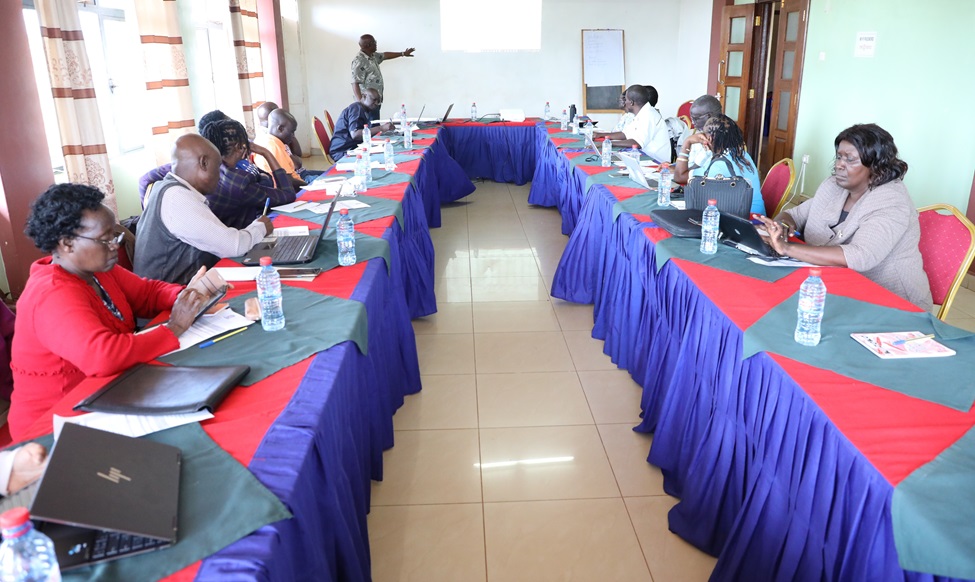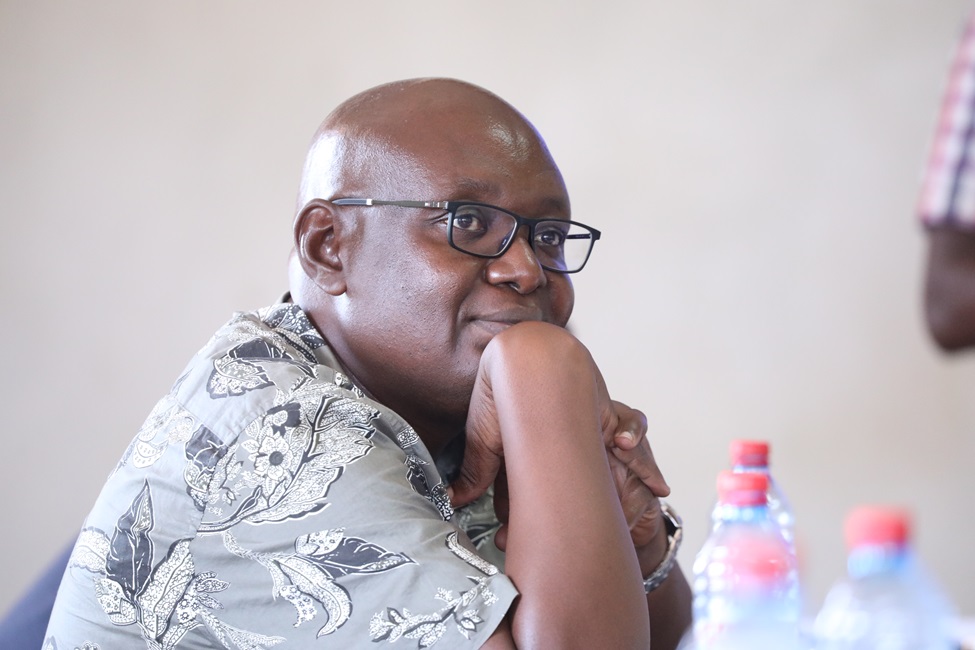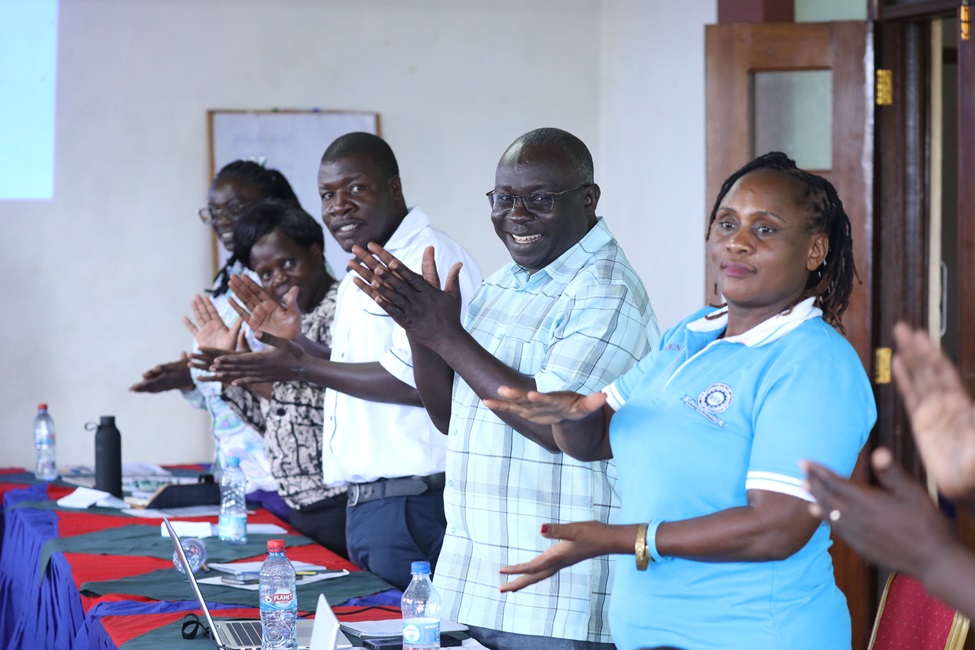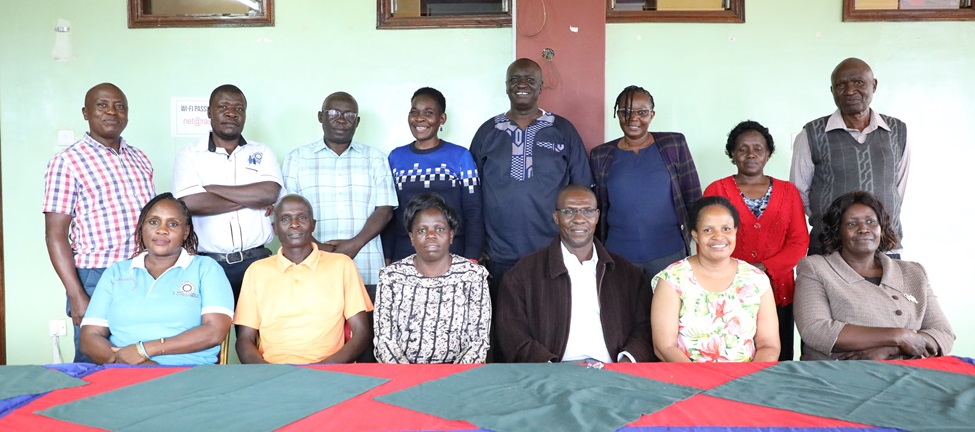Masinde Muliro University of Science and Technology (MMUST) has stepped up its efforts in establishing a gender sensitive institution. On 9th and 10th May 2024, the Directorate of Aids Control, Gender and Disability Mainstreaming carried out a two day workshop aimed at equipping MMUST AIDS Control, Gender and Disability Mainstreaming Committee Members with skills in emerging issues regarding gender mainstreaming. The workshop, themed ‘Enhancing Inclusion at Masinde Muliro University of Science and Technology’ took place at Rastopark Hotel in Busia County.
Speaking during the workshop, the Director, AIDS Control, Gender and Disability Mainstreaming Prof. Benedict Alala, noted that it is the mandate of this committee to ensure that MMUST remains compliant to matters concerning gender. He noted that the University has come a long way in achieving gender parity and through this committee the directorate has been able to advise the University Management on matters of gender mainstreaming. He took the committee members through the demographics of the University, cutting across staff, students and the University Management.

Members of the Gender Mainstreaming Committee during the workshop in Busia.
The workshop facilitator from the Impact of National Gender and Equality Commission (NGEC), Mr. Davies Okeyo, emphasized on the need for the committee members to always adhere to gender equality and be gender-sensitive without bias or discrimination. He challenged them to be on the frontline in advocating for gender issues and creating awareness on the importance of gender mainstreaming not only in MMUST, but also in their own communities.
Dr. Lucy Mandillah stressed on the importance of deepening the understanding of the terms of reference used in gender mainstreaming. She noted that MMUST is on the right path in establishing a single channel that will be used in reporting gender issues at the University. This will certainly ensure that there are clear statistics on issues affecting gender. Dr. Mandillah further noted that there is need to use our University Alumni network to reach out for partnership with like-minded organizations in advancing gender mainstreaming issues.

Prof. Benedict Alala keenly follows the presentations at the event.
Topics discussed during the workshop included; ‘Tracking Progress on Gender Equality and Inclusion within the University – Programmes, Policies, Staff, Students Population and Leadership’ by Prof. Benedict Alala, ‘Deepening the Understanding of the Terms of Reference for the Gender Mainstreaming Committee’ by Dr. Lucy Mandillah, ‘The Role of the National Gender and Equality Commission: Gender Mainstreaming as a Change Strategy’ by Mr. Davies Okeyo, ‘Introduction to Key Gender Concepts and Definitions; Overview of the Existing Legislative And Normative Frameworks Governing Gender Equality And Mainstreaming In Kenya And Internationally’; ‘The Reporting tool on Gender Mainstreaming in the Government of Kenya to Improve Institutional Accountability for Gender Equality and Mainstreaming: Gender Mainstreaming Tool’; as well as ‘Action Plans on the Strategies for Working with Schools (Units) and Departments to Tackle Gender Inequality, Harassment and Sexual Violence’ by Mr. Davies Okeyo.

A section of the committee members applaud one of the presenters at the event.
The members to this committee include; Dr. Collins Matemba, Prof. Benedict Alala, Prof. Gladys Mengich, Prof. Lydia Wamocha, Prof. Bernardette Sabuni, Dr. Lucy Mandillah, Dr. Edward Khasakhala, Dr. Sabella Kiprono, CPA Stella Kabuga, Mr. Josephat Shigogodi, Mr. Levy Wanyama, Mr. Benedict Shitera, Mr. Cosmos Ruto, Mr. Felix Ambuche, Ms. Elizabeth Simiyu. Non- Committee members present at the workshop were; Mr. Victor Dinda, Ms. Adelaide Imbuka, Ms. Eunice Pundo, Ms. Carol Wafula.
Gender mainstreaming has been embraced internationally as a strategy for realizing gender equality. It ensures that policy-making and legislative work is of higher quality and has greater relevance for society because it makes policies respond more effectively to the needs of all citizens – women and men, girls and boys. Aspiration 6 of the Africa Union Agenda 2063 envisages that all the citizens of Africa will be actively involved in decision making. It stipulates that Africa shall be an inclusive continent where no child, woman or man will be left behind or excluded, on the basis of gender, political affiliation, religion, ethnicity, locality, age or other factors. MMUST has made strides in realization of this aspiration by establishing and fully supporting the Directorate of AIDS Control, Gender and Disability Mainstreaming.





